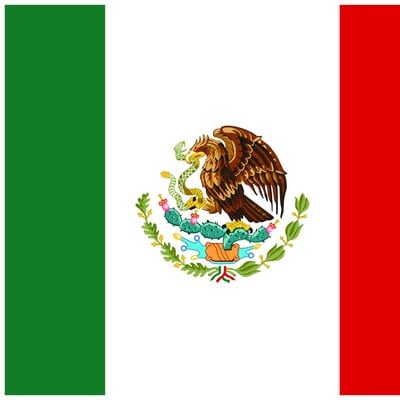As Mexico prepares for elections on June 2nd, the country is on the brink of a turning point in its political history.
With thousands of positions up for grabs and an unprecedented number of candidates running, the stage is set for a landmark event that could see Mexico's first female president take power, CNN reported.
Click here to connect with us on WhatsApp
The presidential election in particular has captured the nation's attention, with several prominent candidates leading the charge.
Here is an overview of the main candidates:
Claudia Scheinbaum
The 61-year-old Sheinbaum has a wealth of experience, having served as Mexico City's mayor and been a renowned climate scientist. A staunch supporter of current President Andrés Manuel López Obrador, Sheinbaum's candidacy would mean continuing the president's policies that focus on social welfare, education, and environmental sustainability. If elected, she would not only become Mexico's first female president, but also, as CNN reports, the first person of Jewish descent to hold the presidency.
In his policy, Scheinbaum pledged to:
* Continuation of Lopez Obrador's pension plan for the elderly
* Expanded scholarships for students
* Free fertilizer for small farmers
* Implement comprehensive security reforms, including strengthening the National Guard and reforming the justice system.
* Despite his close relationship with President Lopez Obrador, Scheinbaum has emphasized his independence and leadership style, differentiating himself from his predecessor while seeking to embrace his core values.
Xochitl Galvez
Backed by a coalition of opposition parties including the PRI, PAN and PRD, Galvez has emerged as a formidable challenger to Scheinbaum's candidacy. With a background in business and politics, Galvez offers a fresh perspective on governance, advocating for a universal social security system and focusing on strengthening local law enforcement.
Her suggestions include:
* Continuation of Lopez Obrador's pension plan for the elderly
* Implementing a comprehensive social welfare system for the middle and lower classes
* Prioritize renewable energy efforts to reduce Mexico's reliance on fossil fuels
* Strengthening local and state police forces to address security challenges
* Galvez's mixed race heritage and experience with Indigenous issues underscore her commitment to inclusivity and social justice, resonating with voters across the political spectrum.
Jorge Alvarez Minez
A relative newcomer to the presidential race, Mainez has attracted attention for her bold policy proposals and progressive vision for Mexico's future. The 38-year-old represents a new generation of leaders who advocate for sweeping reforms to address pressing issues such as crime, economic inequality and environmental sustainability.
The 38-year-old vowed:
* Decriminalize simple drug possession to address poverty and reduce incarceration rates.
* End the militarization of law enforcement and focus on police training and community engagement
* Implement universal pensions and progressive tax reform to address economic inequality
* Transition Mexico's energy sector towards renewable and clean energy sources.
* Despite facing adversity, including a tragic accident during the election campaign, Maynes remains committed to his vision of a more equitable and sustainable Mexico.
Key issues: security and migration
Mexico's elections will be determined not only by the personalities and policies of the presidential candidates, but also by pressing issues such as security and immigration. As CNN reports, with rising crime rates and ongoing challenges at the border, Mexico faces complex, interconnected challenges that require thoughtful leadership and strategic solutions.
Safety remains a top priority for voters as concerns about political violence and organized crime overshadow the electoral process. Despite improvements in certain indicators, such as homicide and firearms crime, Mexico continues to grapple with systemic problems that threaten the safety and stability of its citizens.
Immigration also looms high on the national agenda, with Mexico serving as a transit point for thousands of migrants and asylum seekers seeking refuge in the United States, CNN reported.

